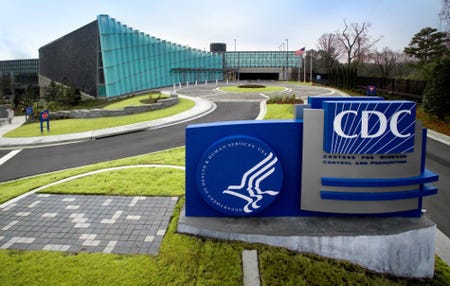CDC: Heart Surgery Device Has Problems
October 17, 2016
Contaminated OR devices may have harmed open-heart surgery patients in the U.S and Europe, according to the CDC in the U.S.
Nancy Crotti
 The U.S. Centers for Disease Control and Prevention is warning healthcare providers and patients about the potential risk of infection from heater-cooler devices used during open heart surgery.
The U.S. Centers for Disease Control and Prevention is warning healthcare providers and patients about the potential risk of infection from heater-cooler devices used during open heart surgery.
The Stockert 3T heater-cooler devices made by LivaNova PLC might have been contaminated during manufacturing, which could put patients at risk for life-threatening infections, CDC said in its alert. Recently completed laboratory tests by CDC and National Jewish Health show bacteria from the 3T heater-cooler devices match bacteria found in patients in several states. These results build on previous evidence from Europe that suggests the bacteria contaminated these devices during manufacturing in Germany.
The bacteria, Mycobacterium chimaera, is a species of nontuberculous mycobacterium often found in soil and water. In the environment, M. chimaera rarely makes healthy people sick. But patients who have been exposed to the bacteria through open-heart surgery can develop symptoms such as night sweats, muscle aches, weight loss, fatigue, or unexplained fever, which can often take months to develop.
As a result, diagnosis of these infections can be missed or delayed, sometimes for years, making them more difficult to treat. There is no test to determine whether a person has been exposed to the bacteria. Infections can be diagnosed by detecting the bacteria by laboratory culture; the slow growing nature of the bacteria can require up to two months to rule out infection.
Liva is "working with regulators to develop a solution that addresses their concerns and ensures continued clinician access to this important device which enables lifesaving cardiac surgery," spokeswoman Karen King told Qmed via email.
FDA has also updated recommendations around the danger.
A class action lawsuit filed earlier this year against LivaNova claims that thousands of patients were exposed to a potentially fatal infection through an open-heart surgery device. The lack of timely tracking of infections echoes problems outlined in duodenoscope litigation.
FDA recently updated a June 2016 alert about the Mycobacterium chimaera (M. chimaera) infections associated with the use of the devices.CDC and FDA first issued alerts about these potentially contaminated heater-cooler devices in 2015.
More than 250,000 heart bypass procedures using heater-cooler devices are performed in the United States every year. Heater-cooler units are an essential part of these life-saving surgeries because they help keep a patient's circulating blood and organs at a specific temperature during the procedure. Approximately 60% of heart bypass procedures performed in the U.S. utilize the devices that have been associated with these infections. CDC estimates that in hospitals where at least one infection has been identified, the risk of a patient getting an infection from the bacteria was between about 1 in 100 and 1 in 1000. While these infections can be severe, and some patients in this investigation have died, it is unclear whether the infection was a direct cause of death. Available information suggests that patients who had valves or prosthetic products implanted are at higher risk of these infections.
CDC also released a health alert network advisory to help hospitals and healthcare providers identify and inform patients who might have been put at risk.
"It's important for clinicians and their patients to be aware of this risk so that patients can be evaluated and treated quickly," said Michael Bell, MD, deputy director of CDC's division of healthcare quality promotion. "Hospitals should check to see which type of heater-coolers are in use, ensure that they're maintained according to the latest manufacturer instructions, and alert affected patients and the clinicians who care for them."
Nancy Crotti is a contributor to Qmed.
Like what you're reading? Subscribe to our daily e-newsletter.
[Image by James Gathany, Centers for Disease Control and Prevention - http://www.cdc.gov/media/subtopic/library/building.htm, Public Domain, https://commons.wikimedia.org/w/index.php?curid=26840358]
About the Author(s)
You May Also Like


